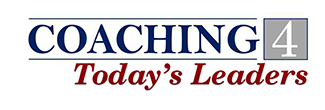
“There are plenty of obstacles in your path. Don’t allow yourself to become one of
them.” — author unknown
This quote got my attention when I saw it in another newsletter. It reminded me of a
question that often comes up when a coaching client is forming a plan for something
they want to accomplish.
I’ll ask what sabotage would look like, or how this plan could get derailed. The most
common answer? “Well, it’s me. I’m what’s going to get in the way of this.”
It takes self-awareness to recognize how we get in our own way, or that we will
probably do that at some point. One of the roles of a coach is to act as a mirror to help
people see themselves clearer – people hire us to speak the truth.
Self-awareness alone will not remove the obstacle – in this case, ourselves. We need to
come up with a plan or strategy to address it, which is another way coaching can help.
With self-awareness, people take responsibility for not reaching their goals, instead of
blaming outside forces like other people or the economy.
Self-awareness is also invaluable in our interactions with people, especially as leaders
hoping to influence people without our baggage getting in the way.
What is it like to be led by you? There are a number of assessments out there like
Myers-Briggs, DiSC®, and StrengthsFinder that help you understand yourself better, and
360-degree assessments that poll your colleagues and direct reports to reveal how you
are perceived as a leader.
There are different levels of self-awareness and we each have blind spots of things we
cannot see for ourselves. Psychologists Joseph Luft and Harrington Ingham created the
Johari Window model to help people understand the gaps between what they know
about themselves and what others can see about them.
As the Johari window and 360-degree assessments will reveal, there are some things we
just won’t know from our own consciousness. Einstein said we can’t solve a problem
with the same brain we used when we created that problem. We need outside
perspectives to broaden our knowledge and insight into ourselves, our situation, and
the world around us.
Self-sabotage and self-awareness are like two sides of the same coin. We all get in our
own way. The greatest leaders are the ones who are always striving to become more self-aware and who use that knowledge to bring other people in to fill the gaps in their
own capabilities.

 Do You Have Four Seconds to Be a Better Leader?
Do You Have Four Seconds to Be a Better Leader?